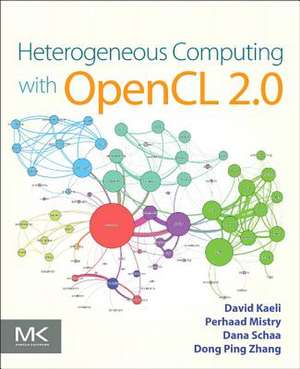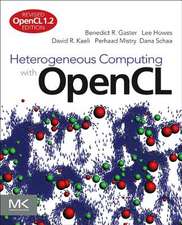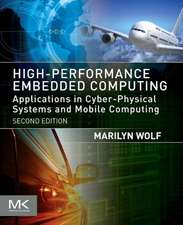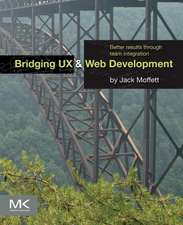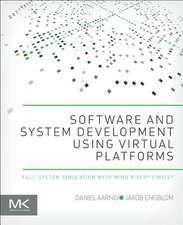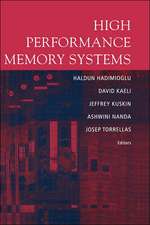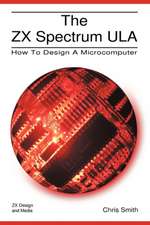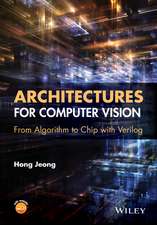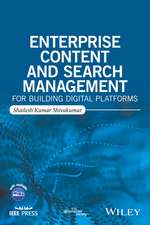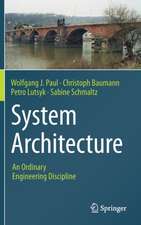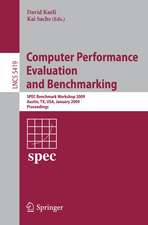Heterogeneous Computing with OpenCL 2.0
Autor David R. Kaeli, Perhaad Mistry, Dana Schaa, Dong Ping Zhangen Limba Engleză Paperback – 18 mai 2015
• Shared virtual memory to increase programming flexibility and reduce data transfers that consume resources
• Dynamic parallelism which reduces processor load and avoids bottlenecks
• Improved imaging support and integration with OpenGL
Designed to work on multiple platforms, OpenCL will help you more effectively program for a heterogeneous future. Written by leaders in the parallel computing and OpenCL communities, this book explores memory spaces, optimization techniques, extensions, debugging and profiling. Multiple case studies and examples illustrate high-performance algorithms, distributing work across heterogeneous systems, embedded domain-specific languages, and will give you hands-on OpenCL experience to address a range of fundamental parallel algorithms.
- Updated content to cover the latest developments in OpenCL 2.0, including improvements in memory handling, parallelism, and imaging support
- Explanations of principles and strategies to learn parallel programming with OpenCL, from understanding the abstraction models to thoroughly testing and debugging complete applications
- Example code covering image analytics, web plugins, particle simulations, video editing, performance optimization, and more
Preț: 331.29 lei
Preț vechi: 486.62 lei
-32% Nou
Puncte Express: 497
Preț estimativ în valută:
63.40€ • 65.95$ • 52.34£
63.40€ • 65.95$ • 52.34£
Carte tipărită la comandă
Livrare economică 07-21 aprilie
Livrare express 08-14 martie pentru 98.45 lei
Preluare comenzi: 021 569.72.76
Specificații
ISBN-13: 9780128014141
ISBN-10: 0128014148
Pagini: 336
Dimensiuni: 191 x 235 x 15 mm
Greutate: 0.7 kg
Editura: ELSEVIER SCIENCE
ISBN-10: 0128014148
Pagini: 336
Dimensiuni: 191 x 235 x 15 mm
Greutate: 0.7 kg
Editura: ELSEVIER SCIENCE
Public țintă
Software engineers, programmers, hardware engineers, graduate students.Cuprins
ForewordCh 1: Introduction Ch 2: Device Architectures Ch 3: Introduction to OpenCL Ch 4: Examples Ch 5: Execution Model Ch 6: host-side memory model Ch 7: device-side memory model Ch 8: ImplementationCh 9: Case study: Image Clustering and Search Ch 10: Profiling and Debugging Ch 11: C++ AMP Ch 12: WebCL Ch 13: Foreign Lands: Plugging OpenCL In
Recenzii
"...one of the best sources to start with OpenCL…If you need to start writing parallel programs but are intimidated by the complexity, this book will not leave you any excuses!" --Computing Reviews
